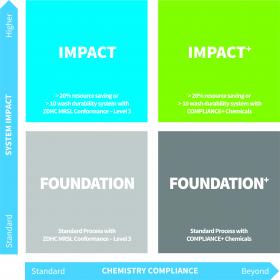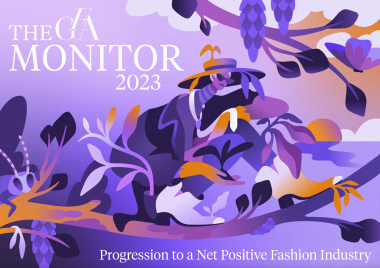Launch of GarmentTech İstanbul Exhibition
Turkey's leading garment machinery manufacturers and representatives have collaborated with Teknik Fuarcılık for GarmentTech İstanbul Garment, Embroidery Machines Spare Parts and Sub Industry Exhibition to host the first GarmentTech İstanbul Exhibition.
The GarmentTech İstanbul Exhibition will be held at İstanbul Expo Center (IFM) between June 25-28, 2025 and brings together all the technologies used in garment and ready-to-wear production.
The ready-to-wear and garment sector is among the locomotive sectors of the Turkish economy with both employment and export income. With 22 thousand 640 exporters and 42 thousand 434 manufacturers, the sector is among the priority sectors in the country's employment with approximately 700 thousand people working in production. Together with the retail and ready-to-wear sectors, total employment exceeds 2 million.
On the other hand, ready-to-wear and garment sector is the 3rd largest exporter in Turkey. Turkey is the 5th country in the world that exports the most ready-to-wear and garment. In 2023, the sector reached 19.3 billion dollars in exports and has a share of 7.5% in general exports.
Teknik Fuarcılık, which has more than 30 years of experience in exhibition organization and has made the ITM International Textile Machinery Exhibition a world brand, has taken action to make the success achieved by the garment and ready-to-wear sector sustainable. GarmentTech İstanbul Exhibition, which will be organized with the support of the members of the Garment Machinery Advisory Board and in cooperation with the Apparel Automation and Machinery Manufacturers Association (KOMİD), will host professional visitors and global buyers from all over the world.
The press conference of GarmentTech İstanbul Exhibition was attended by members of the Garment Machinery Advisory Board, Vice Chairman of Astaş Holding H. Kaya Aşçı, Astaş Juki Board Member and General Manager Turgay Aşçı, Chairman of the Board of Çatma Makine Yavuz Çatma, Chairman of the Board of Alba Makine Cengiz Albayrak, General Manager of Malkan Makine Alparslan Er, General Manager of Uğur Makine Temel Kamiloğlu, Tetaş Sales and Marketing Assistant General Manager Murat Eren, Malkan Makina Factory Manager Metin Kılıç and KOMID President Haluk Akın, TEMSAD President Adil Nalbant, KOMİD Members Serkon Makina Chairman İzzet Savaş, Robotech General Manager Hüseyin Çetin, Chairman of the Board of NewTech Machinery Nezir Yazıcı, LGM Foreign Trade Specialist Yiğit Sağdık Manav, Avtek Manager Oğuz Avcı and many sector representatives.
Teknik Fuarcılık




























